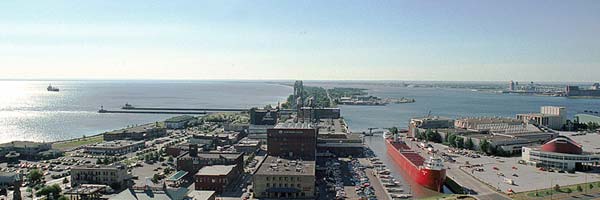The University of Minnesota Duluth (UMD) Large Lakes Observatory (LLO) will host the 10th International Paleolimnology Symposium June 25 - 29 at the DECC, bringing together over 250 scientists from throughout the world.
The paleolimnology symposia are held every four years throughout the world. This is the first one ever held in the United States, and only the second in North America. The last event took place in Finland.
Paleolimnology is the scientific study of the past history of lakes. Theme for the event is "Past Ecosystem Processes and Human-Environmental Interactions."

Both the theme and focus of this year's conference deal with the broader dimensions of human impacts on the Earth's ecosystems. Because the vast majority of our global ecosystems have a significant history of human impact, viable strategies for their preservation, conservation, or sustainable management require an understanding of long-term responses to climate and human activities.
As a historical science, paleolimnology has advanced in its ability to decipher ever more detailed, robust, and quantitative information from a complex and fragmentary sedimentary record. The topic areas for the conference will emphasize those areas where the science has made greatest progress and holds greatest potential to address the pressing problems of global ecosystem change.
Key questions to be explored will be:
Choose appearance:
[ Desktop
| Mobile friendly ]